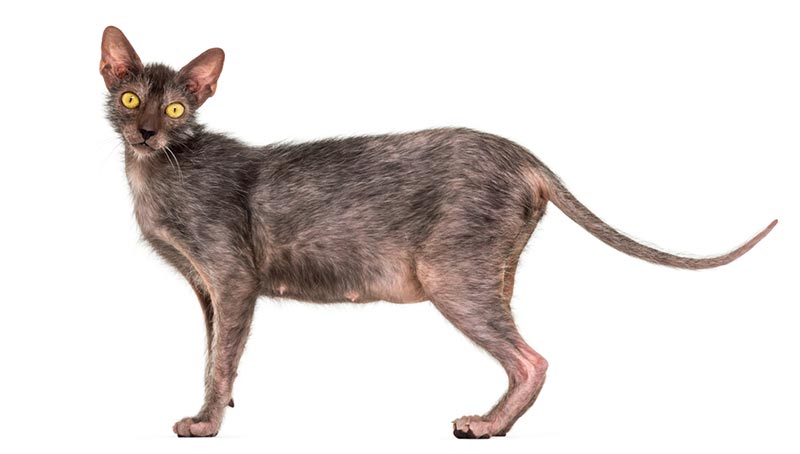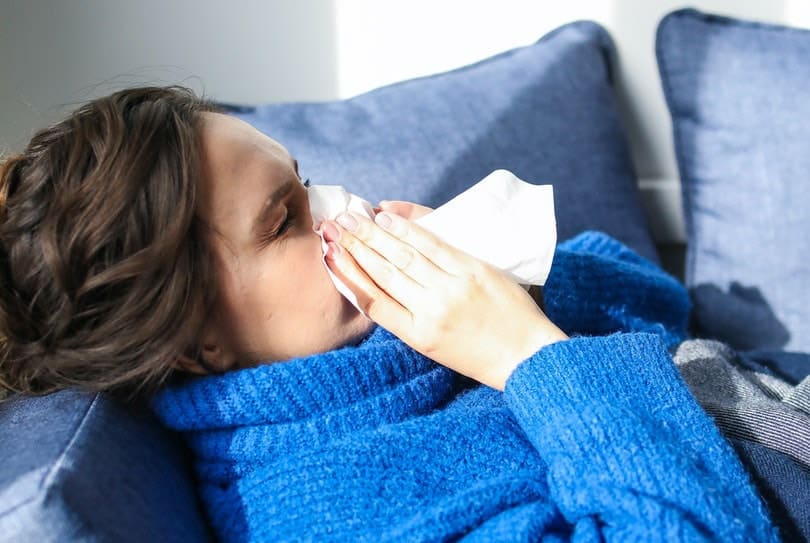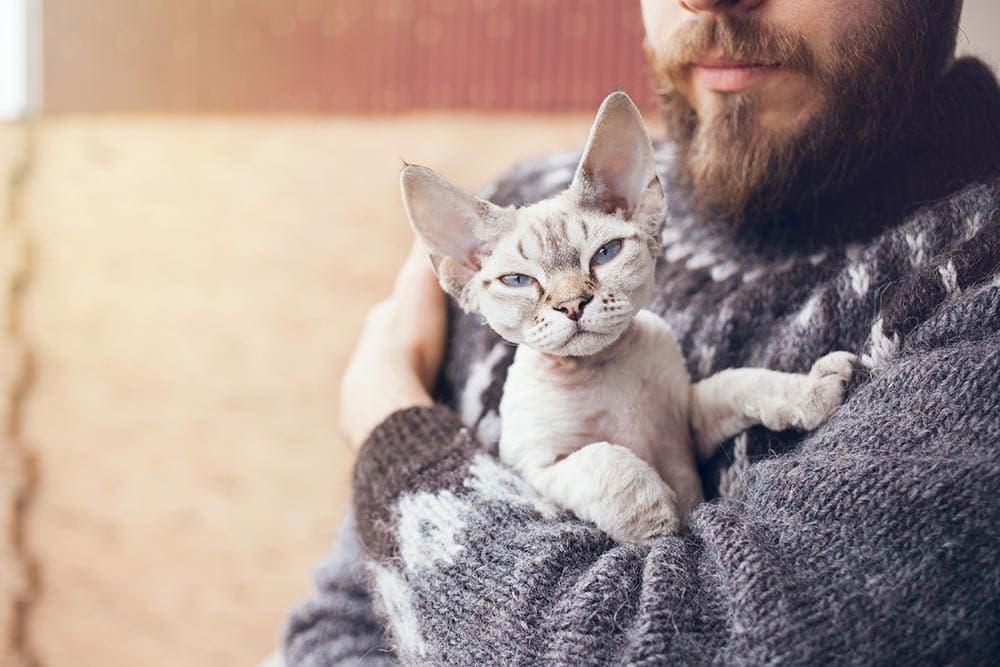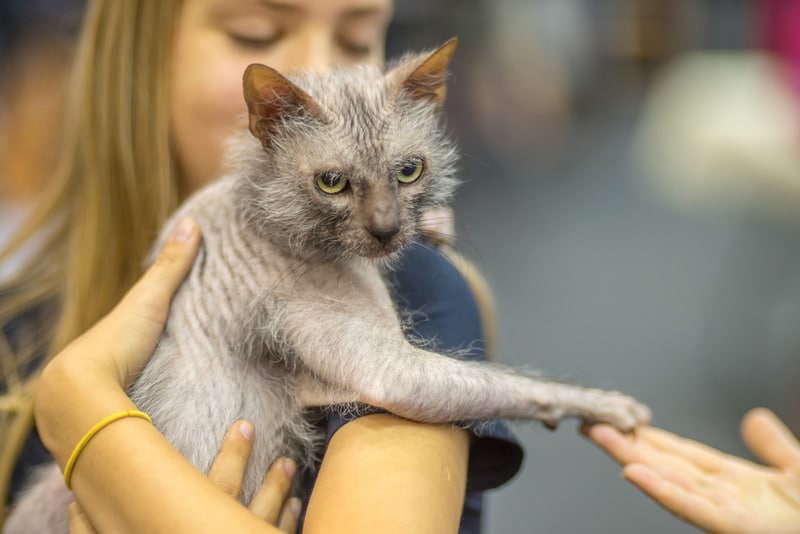Click to Skip Ahead
Lykoi cats, also called “wolf cats” or “werewolf cats,” are loving companions who love to cuddle in your lap. The unique-looking breed is affectionate, sociable, and only weighs 6–12 pounds. Their sparse coats look coarse and rough, but despite the appearance, the coat is short and fine. Speaking of the coat, are Lykoi cats hypoallergenic? Unfortunately, Lykoi cats are not considered hypoallergenic due to their longer topcoat that sheds frequently.
In this post, we’ll explore the fascinating Lykoi and other breeds that may be more suitable for allergy sufferers.

Are Lykoi Cats Hypoallergenic?
Although they are partially hairless, the Lykoi is not considered hypoallergenic. Their topcoat sheds frequently, and they can still cause problems for allergy sufferers, as dander is an allergy trigger 1. Most people allergic to cats react to the allergen known as Fel d 1, a protein found in cats’ saliva and sebaceous secretions 2.
There are eight other recognized cat allergens, but Fel d 1 is responsible for 96% of reported allergy reactions. It’s important to note that no cat breed is 100% hypoallergenic, but depending on various factors, some breeds are more likely to be easier on allergies than others. If you only have mild allergies to cats, you may be able to live with a Lykoi, but if your allergies are severe, you may have issues keeping one in your home.

How Much Does the Lykoi Cat Shed?
When you consider the appearance of these partially hairless cats, shedding is not something that immediately comes to mind. The Lykoi is partially hairless because they cannot grow a full undercoat at any time. This is because of the “Lykoi gene.” Still, the cats shed more than the average shorthaired breed. The Lykoi sheds heavily twice a year and may even shed their entire coat.
A unique feature of these cats is that their coats change often. Their fur undergoes seasonal changes, in which it grows out longer or may shed entirely. The fur changes throughout the cat’s lifetime, and the colors are unusual, growing in with various white, gray, or black patches.

What Are the Symptoms of a Cat Allergy?
If you’re unsure you have a cat allergy, look out for these signs whenever you come in contact with a cat. They can develop within a few minutes of exposure or may take several hours.
- Hives or a rash on the chest or face
- Itchy, red eyes
- Coughing and wheezing
- Redness of skin after coming in direct contact with the cat
- Itchy, running, or stuffy nose
- Sneezing

Can Cat Allergies Be Managed?
Some cat lovers can deal with the unpleasant issues a cat allergy brings; however, you can take over-the-counter antihistamines, decongestants, and nasal steroid sprays to ease your symptoms. You can also get weekly allergy shots or immunotherapy, as it’s technically called, to reduce your allergies.
Another option is to keep the cat out of the rooms you frequent. As much as you want to, do not let your cat sleep with you since it will aggravate your allergies. Keep the home as clean as possible, and vacuum using a HEPA filter to collect the dander.
What Are the Best Cat Breeds for Allergy Sufferers?
Now that we know the Lykoi is not ideal for those with cat allergies, what breeds are considered better choices? Have a look at the list below to help you search for a “hypoallergenic” cat breed.


Final Thoughts
The Lykoi cat is a rare designer breed with unusual fur. Despite being part of semi-hairless cat breeds, their fur sheds frequently and is not ideal for the allergy sufferer. You can take steps to ease your allergies if you only have mild flare-ups, but you should avoid this breed if you have asthma or other severe conditions that can be triggered around cats.
While there is no true 100% hypoallergenic cat breed, some do not shed as much or produce less Fel d 1, which can allow someone with allergies to have a cat. Sadly, the Lykoi is not one of them.
Featured Image Credit: Jaroslaw Kurek, Shutterstock









